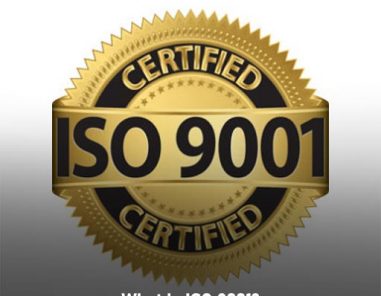
What is ISO 9001? Definition of Quality Management System
The ISO 9001 standard is the leading standard for quality management. The ISO...
Read MoreThe ISO 9001 standard provides organisations with a framework that ensures a structured approach to the management of quality, allowing enhanced customer satisfaction. In simpler terms, ISO 9001 certification provides the basis for effective processes and effective people to consistently deliver effective products and services.
Successful business processes are dependent on strong quality control. ISO 9001 helps organisations achieve consistency in quality by applying the same information, methods, skills and controls on a congruous basis throughout the implementation of a Quality Management System (QMS). In this article, we discuss the importance of ISO 9001 audit training for organisations. Using ISO consulting services will help you get answers to your questions directly.

A QMS is an organised system that documents processes, procedures and responsibilities for achieving an organisation’s quality policies and objectives. Through the implementation of a QMS based on ISO 9001 certification, companies can achieve customer satisfaction, product improvement, process improvement, operational efficiency, risk management and enhanced brand reputation.
In order to achieve these benefits, it is essential to remain compliant with the recommendations outlined in the standard. Auditing becomes an essential part of remaining certified as it ensures that an organisation’s QMS complies with the requirements outlined in the ISO 9001 standard.
Furthermore, an audit not only identifies and addresses any issues with the quality management system, but also highlights business growth opportunities.
Acquiring and maintaining ISO 9001 certification for your QMS is not a single event. It is a series of interconnected, ongoing reviews that ensures that an organisation’s processes are compliant with the recommendations of the standard. Once the QMS has been developed and implemented, it needs to be audited to ensure that there are no non-conformances.
After acquiring the certification, an organisation enters a three year cycle to maintain their ISO 9001 certification. All audits are based on the same principle of plan-check-act-do, where regular evaluations identify quality issues before they escalate. You can get more information about this in the ISO 9001 audit checklist article.

After an initial certification audit which comprises of an optional pre-assessment, then a mandatory stage one audit and a stage two audit, organisations have to undergo a surveillance audit. During the end of the first year, a surveillance audit is conducted to check if the management system is functioning as expected.
At the end of year two, a surveillance audit is conducted to check if there are any emergent issues. Three months before the end of year three, a re-certification audit is conducted to determine if a new certificate should be issued. The re-issuing of the certificate includes assessing the elimination of all non-conformances and the implementation of corrective actions. For more information, we suggest you read the ISO 9001 standards article.
Audit training are activities that develop the capacities of audit professionals to deliver objective, comprehensive and detailed audits. These activities are aimed to facilitate shared learning and peer exchange regarding the design, content, implementation arrangement, teaching, and organisation environment for continuing professional development of auditors. Specifically, it focuses on the needs and the challenges of small and medium sized audit practises, aiming to help develop both the technical and essential soft skills of auditors.
When talking about ISO 9001 audit training, candidates learn about the main objectives of stage one audit and stage two audit as internal auditors. The main objectives of stage one ISO 9001 audit include:
Additionally, during the ISO 9001 audit training, auditors are trained to analyse the sufficiency of all records including internal audit processes, management reviews, senior management commitment, complains, purchases, quality objectives and quality targets.

Similarly, in stage two audit, the ISO 9001 auditor training teaches auditors to begin with an opening meeting where the following issues are discussed:
The auditor is taught to draft a report after stage two audit, which includes identification of minor nonconformities, major nonconformities and opportunities for improvement. Major nonconformities have the potential to create a total breakdown of the system and should be rectified before the certification audit.
Minor nonconformities arise from the failure of a single observed lapse in the QMS and can be rectified through corrective actions. Opportunities for improvement can enhance the overall status and effectiveness of the QMS and do not affect the recommendation of the certification.
After acquiring experience as internal auditors, candidates can learn about the processes, techniques and objectives of certification/recertification audits. During ISO 9001 auditor training for certification/recertification audits, candidates are taught how to review nonconformities and corrective actions from previous audits, analyse maintenance of QMS and consider the implementation of preventive or corrective actions.
ISO certification gives your organisation a competitive edge. By helping you increase operational efficiency and overall product consistency, your business credibility and authority will soar to new heights.

Copyright © 2022 The ISO Council | Privacy Policy